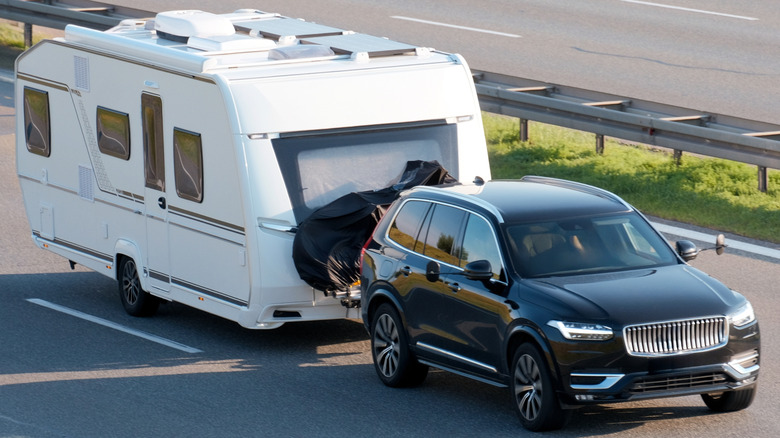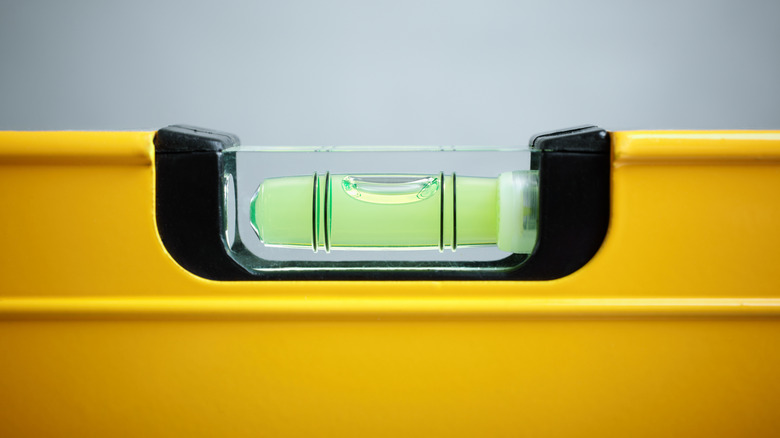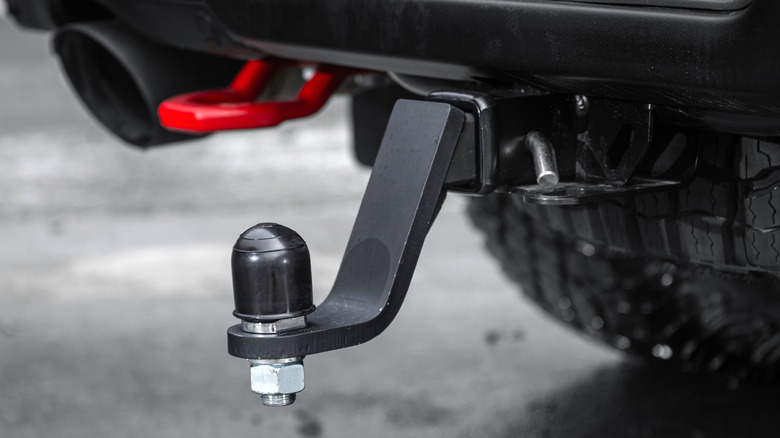
During the COVID-19 pandemic, Americans unable or unwilling to take traditional vacations flocked to the great outdoors. Well, sort of. Flush with stimulus cash, consumers snatched up travel trailers —
replete with air conditioning and satellite television — like hotcakes. Frankly, I expected this trend to have died already, but if the crowded roads and campgrounds in my home state of Colorado are any example, the "COVID camper" trend is still going strong. And besides travel trailers, a boatload of watercraft and rip-roaring fun side-by-sides (sometimes called UTVs) found their way into suburban driveways all over the U.S. during the lockdown era.
Whatever your towable recreational vice, you'll want to make sure that the trailer involved is configured properly for towing that's not only safe, but minimizes wear while maximizing fuel economy. A significant piece of that equation involves the trailer's tongue height, which can be calculated by measuring the distance between the ground and the trailer's coupler — the part that mates with your vehicle's hitch ball. But first, you'll need some sort of level checker to make sure that the trailer is, well, level before measuring. This can be a box level that's common in construction, a magnetic level with an electronic readout, or even a trailer-specific level indicator that can be permanently mounted to your trailer like these from the EZ Travel Collection.
Read more: These Are Lesser-Known Automotive YouTubers Our Readers Say Deserve More Attention
Drawbars Can Raise Or Lower The Hitch Ball

Once the trailer is leveled via raising or lowering the tongue jack that's usually built into the front of the trailer, you'll want to measure both trailer and tow vehicle while disconnected to confirm that the hitch ball on your vehicle is at relatively the same height as the trailer tongue. If it's not, you can purchase a hitch ball mount (also called a drawbar) that lowers or raises the height of the hitch ball.
For example, consider a travel trailer coupler that's 16 inches off the ground when the trailer is level. If the trailer hitch on your brodozer-lifted pickup truck is 22 inches from the ground, a drawbar with a 6-inch drop will be required to level things out. On the other hand, perhaps you're towing with a car that's lower than typical trucks or SUVs. In that case, you may need a drawbar that raises the level of the hitch ball a few inches to match the height of the leveled trailer's coupler.
Frequently, drop hitches can be used upside down to provide rise instead, or vice-versa, though obviously the hitch ball will need to be (re)installed facing up. If you frequently tow several different trailers with varying coupler heights, it could be worth investing in an adjustable drawbar, which can be raised or lowered in increments without removing it from the vehicle. While you're in the shopping groove, also consider buying a gadget to silence the rattle created by a loose tow hitch.
It's All About Tongue Weight

Having a level trailer isn't only about pleasing aesthetics. The real point is for the trailer to exhibit the proper tongue weight, which is the downforce from the trailer's coupler on the hitch ball. Proper tongue weight is typically about 10% to 15% of the trailer's total weight. For instance, a 5,000-pound trailer should put 500 to 750 pounds of weight on the coupling between the trailer and its tow vehicle. If a trailer tongue is too high when attached to a hitch ball, that's going to tilt the trailer rearward, which could mean insufficient tongue weight. Conversely, a too-low tongue height will shift weight forward onto the tongue, perhaps exceeding the recommended 15%.
Tongue weight is important because too little will cause the trailer to dangerously sway or "wag" behind the vehicle and increases the risk of decoupling. On the other hand, too much tongue weight can make the vehicle doing the towing less responsive and accelerate wear on components like transmission, rear suspension, and rear axle. fuel economy will also suffer with either condition.
Making sure the trailer is relatively level isn't a guarantee of proper tongue weight, but it's a good starting point. However, the way a trailer is loaded also affects tongue weight, even if the trailer appears to be level. If you want to be positive, scales like the Simple Weigh, designed to measure trailer tongue weight, start around $100, or you can try a homebrew solution using a bathroom scale.
Want more like this? Join the Jalopnik newsletter to get the latest auto news sent straight to your inbox...
Read the original article on Jalopnik.











